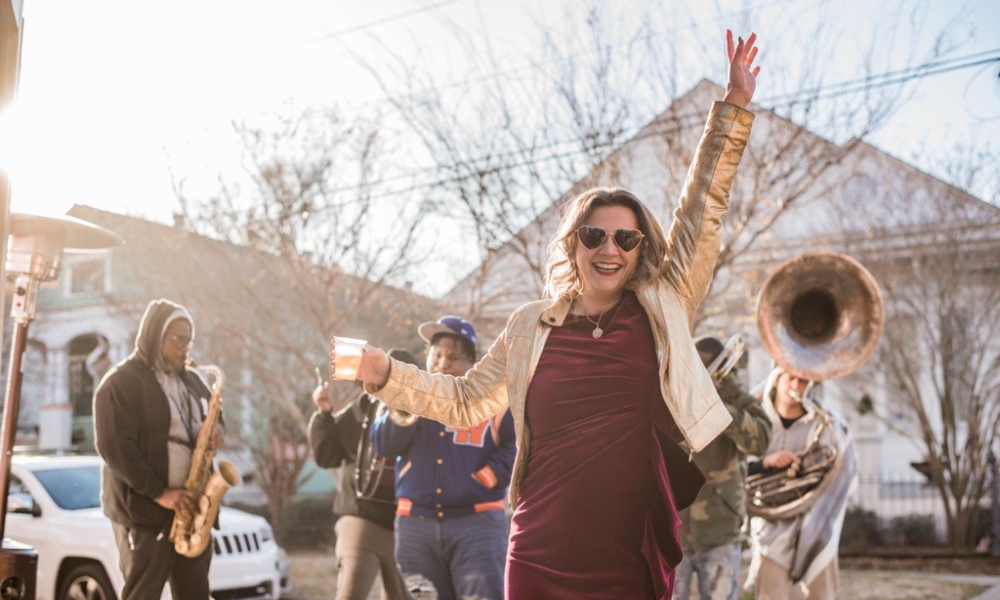Restrictive short-term rental regulations may make it difficult for residents to capitalize off the event

New Orleans, a city pulsing with history, music and an unshakable spirit, is preparing to host the 59th Super Bowl. But beneath the excitement and the economic boom the event will bring, a frustrating reality looms.
While the influx of visitors will pour millions into the city, many locals are unable to capitalize on the event due to restrictive short-term rental regulations, according to Elizabeth Salathe (pictured), a sixth-generation New Orleanian and mortgage broker for My Community Mortgage.
“The city has a huge problem with short-term rentals right now; there’s so much gatekeeping and red tape,” Salathe said. “You have these 100-year-old homes that are incredibly expensive to insure – $10,000 or more a year. That’s doubling on people faster than mortgage rates, which can at least be refinanced. Insurance renews every 12 months. People have been offsetting that cost by renting out rooms, but now? That’s nearly impossible.”
For a city built on tourism, the restrictive policies are baffling, and with new regulations, short-term rental permits are scarce, and the requirements are not always clear.
“There’s a three-way fight,” Salathe said. “You’ve got homeowners who are against short-term renting, the ones who desperately want to do it, and then the hotel industry, which is fighting to shut it down. Every time there’s progress, someone steps in and says no, and it freezes everything again. The rules aren’t imposed fairly on everyone.
“The frustrating part is that people are being blocked from making money that would go right back into the community,” she said. “That income could help with property maintenance, insurance, and preserving these historic homes.”
Despite the challenges, she remains hopeful, with large events contributing significantly to the city’s economy. The city has even made improvements for the big event, including paving the roads in the French Quarter and putting new lights on the Crescent City Connection bridge. However, not everyone is entirely happy where the money is being spent, Salathe said.
“New Orleans thrives off tourism. And events like the Super Bowl bring in the exposure we need,” she said. “When Taylor Swift came through, that one weekend brought in $500 million. Mardi Gras brings in around $900 million for the entire season. So, I’m curious to see what the Super Bowl’s numbers will be. The city needs this.”
For homeowners looking to benefit, long-term rentals remain an option. Still, Salathe believes the city needs to rethink its short-term rental stance.
“If you get a long-term lease, you can use that to offset your mortgage payment and make things more affordable,” she said. “Fannie Mae recently changed the rule so that instead of needing 15% down on a multifamily property, you only need 5%. That’s huge. [When it comes to] scarcity versus abundance – abundance should always win. We need people to come here, fall in love with New Orleans, and want to be part of it. But if we keep making it impossible for homeowners to benefit from tourism, we’re only hurting ourselves.”
As the city gears up for the Super Bowl, the question remains: will the financial windfall reach the people who call New Orleans home? Or will the red tape and restrictions keep them sidelined while the big corporations cash in? For now, Salathe hopes that increased attention will spark change.
“All of this just needs exposure,” she said. “People just need to see it, love it, and want to be here.”
Stay updated with the freshest mortgage news. Get exclusive interviews, breaking news, and industry events in your inbox, and always be the first to know by subscribing to our FREE daily newsletter.



